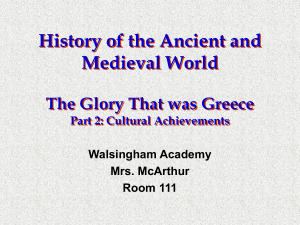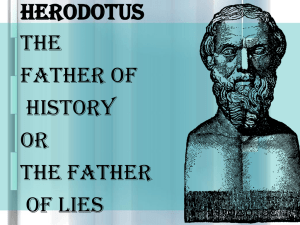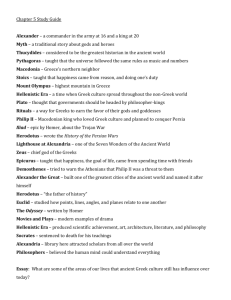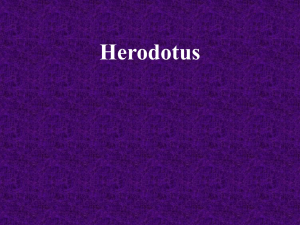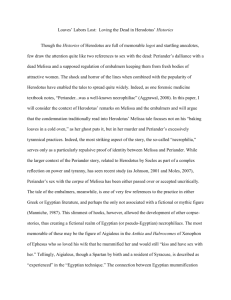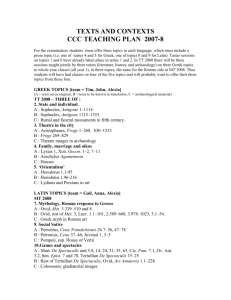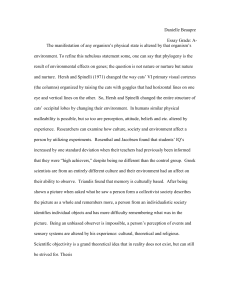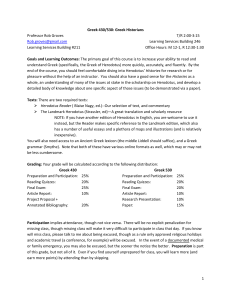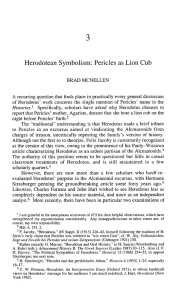“The Reception of Herodotus in Antiquity & Beyond”
advertisement
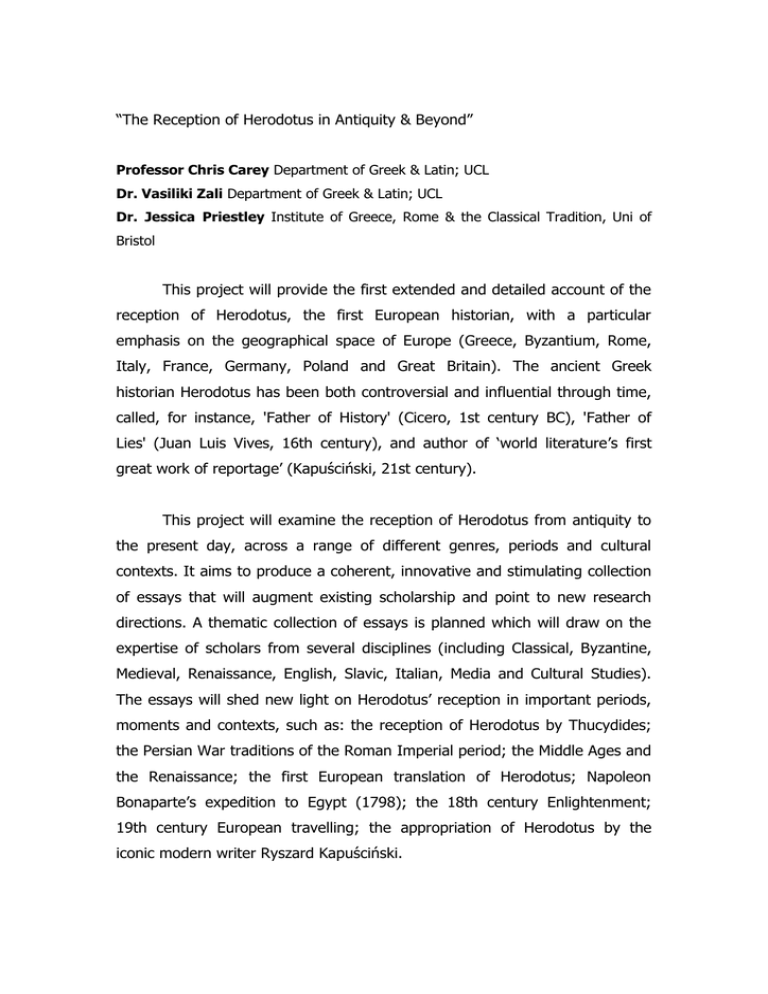
“The Reception of Herodotus in Antiquity & Beyond” Professor Chris Carey Department of Greek & Latin; UCL Dr. Vasiliki Zali Department of Greek & Latin; UCL Dr. Jessica Priestley Institute of Greece, Rome & the Classical Tradition, Uni of Bristol This project will provide the first extended and detailed account of the reception of Herodotus, the first European historian, with a particular emphasis on the geographical space of Europe (Greece, Byzantium, Rome, Italy, France, Germany, Poland and Great Britain). The ancient Greek historian Herodotus has been both controversial and influential through time, called, for instance, 'Father of History' (Cicero, 1st century BC), 'Father of Lies' (Juan Luis Vives, 16th century), and author of ‘world literature’s first great work of reportage’ (Kapuściński, 21st century). This project will examine the reception of Herodotus from antiquity to the present day, across a range of different genres, periods and cultural contexts. It aims to produce a coherent, innovative and stimulating collection of essays that will augment existing scholarship and point to new research directions. A thematic collection of essays is planned which will draw on the expertise of scholars from several disciplines (including Classical, Byzantine, Medieval, Renaissance, English, Slavic, Italian, Media and Cultural Studies). The essays will shed new light on Herodotus’ reception in important periods, moments and contexts, such as: the reception of Herodotus by Thucydides; the Persian War traditions of the Roman Imperial period; the Middle Ages and the Renaissance; the first European translation of Herodotus; Napoleon Bonaparte’s expedition to Egypt (1798); the 18th century Enlightenment; 19th century European travelling; the appropriation of Herodotus by the iconic modern writer Ryszard Kapuściński. This reception history of Herodotus will afford new perspectives on European historical, linguistic, geographical, literary, educational and religious thought and practice across time. The contributors to the volume will come together at a pre-publication workshop at UCL in August 2013.
